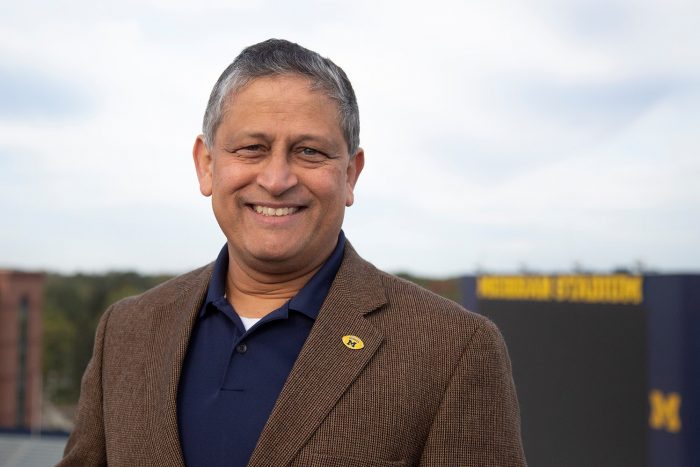
Greetings everyone,
We are concluding the winter term of 2024. This marks the end of an exciting and challenging academic year for our educational community. There is so much turmoil in the world right now. That is why it is vitally important that Michigan IT is always here to support our students, faculty, staff, and each other. We are all in this together. We are a team. So, I want to thank all of you for, once again, focusing so strongly on the needs of our team.
I was so pleased at the turnout for this month’s in-person STAC Summit. The conversation about cybersecurity and our culture of shared responsibility could not be more timely or relevant. I heard excellent feedback from all who attended, and I am grateful that we had the opportunity to have so many stakeholders from Michigan IT together at one time. Opportunities to converse and collaborate like this are vital to our ongoing mission.
I want to share an example of how the impact of our community-first focus has become even more apparent to our larger community. This year, U-M set a record for application volume with over 105,000 applicants for the fall 2024 term, including year-over-year increases in applications from first-generation students, students of color, and international students. We all have helped foster an environment that attracts students from around the world. This proves that looking out for each other benefits our entire university.
This emphasis on our community can also be seen in President Ono’s recent unveiling of U-M’s long-in-development “Vision 2034” report. Over 25,000 people contributed to the report, providing the Vision committee with their feedback on what should come next for U-M’s next decade and beyond. The report’s vision statement says that it wants U-M to be known as “the defining public university,” and I could not agree more.
Vision 2034’s impact areas and essential areas of growth speak directly to so many elements that are perfectly aligned with the values of Michigan IT. It is concerned with everything from life-changing education to the importance of research, discovery, scholarship, and artificial intelligence. I encourage you to all watch President Ono’s video and read the report.
There are so many exciting developments that are happening within our technology communities right now. In my last message, I mentioned that ITS Teaching & Learning has been offering free generative AI training classes for our students, faculty, and staff. Since they launched, over 1,000 people have taken these courses, and even more are scheduled for the future. Our community wants to embrace these emerging technologies, and I so appreciate all the work that Michigan IT is doing to introduce them to our university.
If you want to know why our focus on GenAI is so vital at the moment, I would point you to this recent article from The University Record – “Faculty members consider the role of AI in the classroom,” – which talks about how U-M educators have been incorporating GenAI into their teaching. There are always benefits and challenges when it comes to working with AI, but I think this article shows how U-M is committed to using AI in the most thoughtful, ethical, and responsible ways possible.
That article also aligns nicely with the question I asked the Michigan IT community last month about how you are all using AI tools in your daily lives. (Thank you for all the responses I received.) This month, I would love to hear your thoughts on what the next big technological advances are that we should be ready for when our new students arrive in August. Please reach out to me at rpendse@umich.edu and let me know.
To celebrate the end of the school year, the ITS Marketing & Communications team put together this video to cheer on our graduating seniors. I am grateful to everyone who participated in the making of this video, and I apologize if any of the singing is off-key. (I will blame U-M GPT for that.)
In conclusion, to my colleagues everywhere at Michigan IT, I want to thank you all for your hard work. This has been an extraordinary school year.
With gratitude,
Ravi
Ravi Pendse PhD
Vice President for Information Technology and Chief Information Officer
University of Michigan
